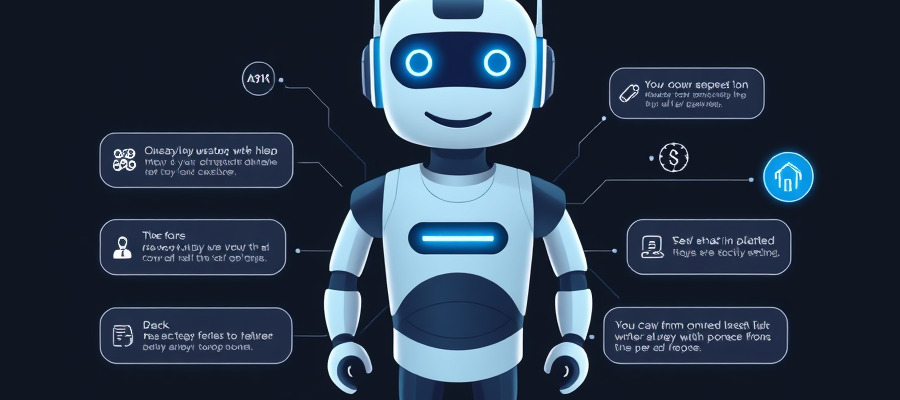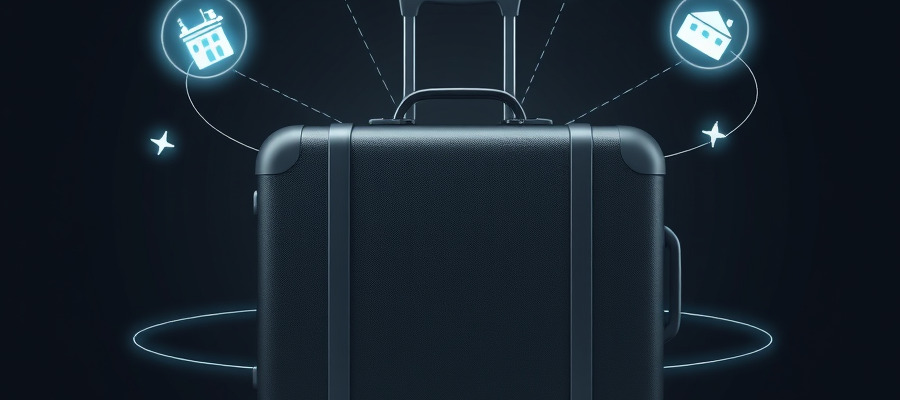Chatbot Flows That Actually Convert Visitors
Design effective chatbot sequences that boost conversions 24/7.

Chatbot Flows That Actually Convert Visitors
In today’s digital landscape, chatbot automation is no longer a luxury—it’s a necessity. Businesses across industries are leveraging the power of AI-powered chatbots to streamline operations, enhance customer experience, and ultimately, drive conversions. But simply implementing a chatbot isn’t enough. The key lies in designing effective chatbot flows that guide visitors towards desired actions. This article explores strategies to create chatbot sequences that truly deliver results.
Understanding the Importance of Chatbot Automation
Before diving into specific flows, let’s understand why chatbot automation is so crucial:
- 24/7 Availability: Chatbots provide instant support and assistance, even outside of business hours, leading to increased customer satisfaction and engagement.
- Improved Lead Generation: Well-designed chatbot flows can effectively qualify leads and capture valuable information, feeding your sales funnel.
- Reduced Operational Costs: Automating repetitive tasks frees up human agents to focus on more complex issues, resulting in significant cost savings.
- Personalized Experiences: Chatbots can personalize interactions based on user data, creating a more engaging and relevant experience.
- Enhanced Customer Service: Instant answers to frequently asked questions reduce wait times and improve customer satisfaction.
Designing High-Converting Chatbot Flows
Creating highly effective chatbot flows requires careful planning and execution. Here are some key strategies:
1. Define Clear Objectives
Before building your chatbot, clearly define your goals. What do you want visitors to achieve through the interaction? Some common objectives include:
- Lead Capture: Collect contact information for future follow-up.
- Appointment Scheduling: Book appointments directly through the chatbot.
- Product/Service Inquiry: Guide users to relevant product pages or answer specific questions.
- Feedback Collection: Gather customer feedback to improve your offerings.
2. Segment Your Audience
Tailoring your chatbot flows to different audience segments enhances personalization and effectiveness. Consider factors like:
- Customer Lifecycle Stage: Are they new visitors, returning customers or potential leads?
- Demographics: Use data like age, location, and interests to personalize the experience.
- Purchase History: Offer customized product recommendations based on past purchases.
3. Create a Conversational and Engaging Experience
Avoid robotic language. Use natural language processing (NLP) to create human-like conversations that keep visitors engaged. Incorporate:
- Personality: Give your chatbot a distinct personality that aligns with your brand.
- Humor: Inject humor where appropriate to make the interaction more enjoyable.
- Visual Elements: Use images and GIFs to break up text and enhance the visual appeal.
4. Guide Users with Clear Call-to-Actions (CTAs)
Use clear and concise CTAs to guide visitors toward your desired actions. Provide multiple options with different pathways based on user preference.
5. Integrate with CRM and other Tools
Seamlessly integrate your chatbot with your CRM (Customer Relationship Management) and marketing automation tools to capture leads and track their activity. This allows for better lead nurturing and follow-up.
Tools for Chatbot Automation
We have built chatbot automations using a variety of tools including:
- Zapier
- Make (formerly Integromat)
- N8N
- Google Apps Script
- Custom Software Development
Choosing the right tools depends on your specific needs and technical expertise.
Conclusion
Effective chatbot automation is essential for driving conversions and improving customer experience. By carefully designing your chatbot flows, segmenting your audience, and creating engaging interactions, you can unlock the full potential of this powerful technology. Remember to continuously analyze your chatbot’s performance and refine your flows based on data and feedback.
Ready to create chatbot flows that convert? Let’s talk! Contact Us



